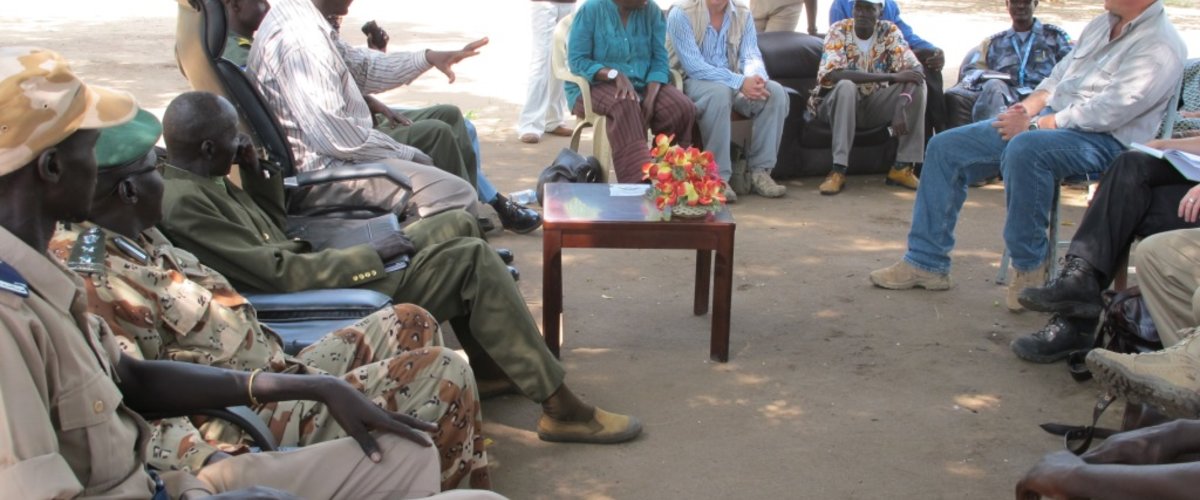17 June 2011- A 13-person delegation led by UNMIS Regional Coordinator for Southern Sudan David Gressly returned to Juba today from a three-day security and humanitarian assessment mission to seven counties of Upper Nile and Jonglei states in Southern Sudan.
The tour that began on 14 June was intended to give delegation members a first-hand look at conditions on the ground in those counties, all of which are contiguous with southern Sudan's international border with Ethiopia or its regional border with the north.
The delegation met with various civilian, police and military authorities to discuss issues of concern to local communities. Mr. Gressly said that UNMIS in the coming weeks would consider the deployment of additional mission personnel in some locations that were visited during the trip.
On the first day of the mission, delegation members visited the Jonglei counties of Pibor, Pochalla and Akobo, where local officials drew their attention to food shortages and the absence in some communities of basic social services like access to health care, schools and key infrastructure such as main access roads.
Officials in Pochalla County administration noted blockage of the route leading into that part of Jonglei State from Ethiopia and how it had affected trade as well as availability of commodities in and around the area.
In anticipation of the looming rainy season, the UN World Food Programme (WFP) has delivered food aid to 3,662 Ethiopian refugees in the county. But humanitarian workers said that was not enough because local residents were also in need of assistance.
"Because of the drought, a large number of (the) local population needs assistance, and we cannot reach all due to the limitation in food aid stock," said Chol Deng Kuang, a field monitor with Norwegian People's Aid, which operates in partnership with WFP in the area.
On the morning of day two, the delegation flew to Maiwut County in Upper Nile State where members spoke with Pal Deng Kerweth, the acting county commissioner.
"The roads to Maiwut from Ethiopia and inside Sudan are blocked since April due to rain," said Mr. Kerweth. "We are short of food and non- food supplies."
Officials in the Upper Nile State county of Renk highlighted security issues related to tension along the border between northern and southern Sudan as well as humanitarian challenges caused by the large influx of southerners returning from northern Sudan and more recent arrivals who have fled the fighting in Southern Kordofan State.
The county administration has designated a temporary settlement area for southern returnees and internally displaced persons (IDPs). WFP and other humanitarian agencies are furnishing food assistance, but returnees and IDPs still face various difficulties.
"There is a serious shortage of water supply, sanitation facility, health care and school in the camps," said Padiet Kak Juach, Renk County coordinator for the Southern Sudan Relief and Rehabilitation Commission, adding that malaria and cholera are the most prevalent diseases in the temporary camps.
At the end of the mission, Mr. Gressly said he would share the humanitarian and security concerns of residents in the seven counties with colleagues in the UN system and officials in the regional Government of Southern Sudan.
 UN
UN United Nations Peacekeeping
United Nations Peacekeeping





